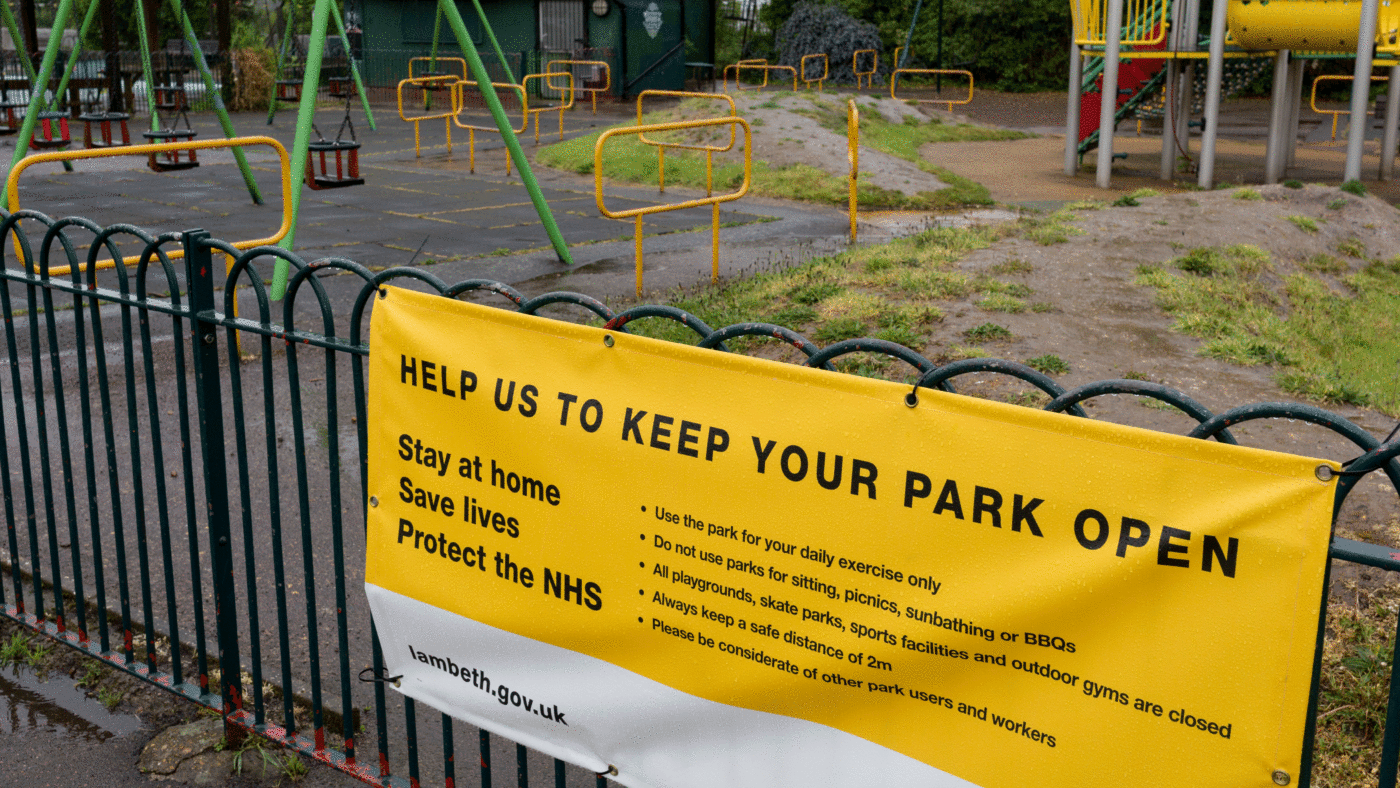The long-anticipated Covid inquiry opened its first session this week, with much fanfare about WhatsApp messages. As ever with media coverage of serious events, it’s easy to let rather prosaic elements distract from the much bigger questions.
For although it may now feel like ancient history, we must not forget that during the pandemic governments undertook an unprecedented experiment in public health. Billions of people were stripped of their basic liberties in the name of saving lives. The goal may have been a noble one, and even hardened libertarians may concede that a deadly new virus justifies some measure of social restrictions.
But those restrictions can only be justified if they actually work. And a study published this week by the Institute of Economic Affairs – written by academics from John Hopkins University and Lund University – suggests that far from being effective, lockdowns were a ‘global policy failure of gigantic proportions. Jonas Herby, Dr Lars Jonung and Professor Steve Hanke found that draconian pandemic policies failed to significantly reduce deaths while imposing substantial social, cultural and economic costs.
The research is based on a meta-analysis which screened 19,646 studies, and focused on 22 studies that could be converted to standardised measures. Meta-analysis is considered the ‘gold-standard’ for evidence, as it combines comparable, independent studies to determine overall trends.
Their research suggests that stringent lockdown measures prevented just 1,700 deaths in England and Wales. To put this into context, between and 18,500-25,000 deaths occur in a typical flu season. These results also paint a stark contrast with Imperial College London’s now infamous modelling from March 2020, which predicted that the Government’s lockdown measures would save over 510,000 lives. By examining the relationship between lockdown strictness and mortality, the authors found that the average lockdown in Europe and the United States reduced mortality from Covid-19 by just 3.2% compared to the most lenient Covid-19 policies.
That is not to imply that human action had no impact on limiting the spread of Covid. The authors conclude that voluntary changes in behaviour, such as social distancing, significantly mitigated the effects of the virus. That is borne out by the fact that Covid cases tended to fall before lockdowns came into effect, as the public became aware of the risk and took actions to limit their exposure. On the other hand, harsher lockdown restrictions, such as school closures and stay-at-home rules, produced negligible reductions in mortality rates.
These findings certainly cast doubt over whether the lockdowns were actually worth the incredibly high costs, many of which we are still living with today. It also challenges the view that the only mistake governments made when it came to lockdowns was not bringing them in earlier.
And it’s worth reiterating just how high the costs of shutting down entire sectors of the economy was, in terms of business closures, financial distress and a huge increase in public debt. Smaller businesses were hit particularly hard, and many were unable to survive the government’s prolonged closures. The lockdowns caused a severe recession, with an unprecedented decline in GDP. According to the Office for National Statistics, between April and June 2020, GDP fell by a record 19.4%.
And we are still living with the consequences of the various policies brought in to mitigate the short-term impact of lockdowns. From ‘Eat Out to Help Out’ to furlough and emergency business loans, a combination of borrowing and money-printing by the Bank of England lumbered the country with even more debt. The high inflation we’re all now experiencing is in no small part a direct consequence of the lockdown era.
That’s before we even come to the effects on school children, the huge increase in NHS waiting list and the cultural madness of the curtain-twitching Covid policing that prevailed during the pandemic. If lockdowns only reduced mortality by 3.2%, was all that really worth it?
One of the main aims of the Covid inquiry is to learn lessons for the future. If our report makes one thing clear, it’s that in future we should be far more cautious when it comes to taking away people’s basic freedoms in the name of ‘protecting’ the public.
Click here to subscribe to our daily briefing – the best pieces from CapX and across the web.
CapX depends on the generosity of its readers. If you value what we do, please consider making a donation.


